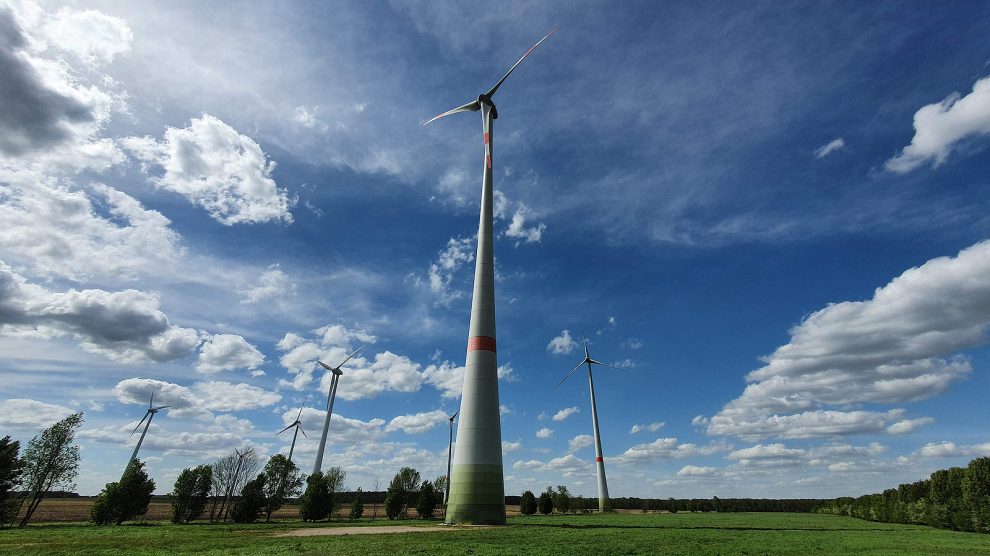With the EU still struggling to decouple from Russian energy, Estonia’s Sunly has raised 300 millions euros to boost energy security in the Baltics and Poland.
As the European Union actively works on reducing its dependance on Russian gas, it faces ongoing challenges. Despite efforts to decrease reliance, EU countries imported around 30 per cent more natural gas from Russia in May 2024 compared to September 2022, according to data from market research group ICIS.
In the Baltic states and Poland, Russia’s significant influence in the regional energy market has historically exposed these areas to price fluctuations and supply disruptions associated with geopolitical tensions, often leading to higher energy costs for consumers than in other European nations.
An upcoming desynchronisation from the Russian and Belarusian electricity grid in February next year is intended to increase regional energy independence and security. Instead, the Baltic states plan to synchronise their electricity systems with the Continental Europe Synchronous Area. Doing so will enable independent, stable, and reliable frequency control, enhancing energy security in the region.
- New investment makes Estonia’s UP Catalyst a transformative force in the European battery landscape
- Governments that are reluctant to embrace climate objectives place the energy transition in jeopardy
- Serbia eyes role as hub of Europe’s EV sector
While the Baltic states are moving ahead with plans to diversify their energy supply through new liquefied natural gas (LNG) infrastructure, raising the level of renewables in the region’s energy mix is also crucial to ensuring energy security. There was a massive boost for this effort this week when Sunly, an Estonian renewable energy producer raised 300 million euros in debt financing to accelerate the construction of 1.3 GW of solar, wind and storage capacity across the Baltics and Poland.
The financing has been provided by Rivage Investment, Copenhagen Infrastructure Partners (CIP) and Norway’s Kommunal Landspensjonskasse, and takes the total capital raised by Sunly so far to 765 million euros. The firm was founded in 2019.
Performance and ESG impact
“This investment enables us to improve our infrastructure with new grid connections and solar parks in the Baltics, which will support our onshore wind and storage pipeline expansion,” says Priit Lepasepp, co-founder and CEO of Sunly.
“To help reduce energy costs, our focus will be on two key areas: building a hybrid pipeline with storage capabilities and advancing the electrification of heating and mobility systems, thereby diminishing our reliance on imported fossil fuels and optimising the use of local renewable resources.”
Sunly intends to develop integrated hybrid parks that combine wind, solar and energy storage batteries at single connection point and direct line to consumers.
This method improves energy production stability in various weather conditions and optimises cost-efficiency by reducing grid connectivity charges—forecasted to account for more than half of the total energy cost.
The approach is expected to significantly benefit consumers, particularly large industrial clients with high energy consumption, by enhancing regional energy security and operational efficiency.
“We are delighted to support Sunly’s strong leadership team through their ambitious growth trajectory and to help accelerate the construction of hybrid renewable energy parks across the Baltics and Poland,” says Gaétane Tracz, partner and dead of the infrastructure debt team at Rivage Investment.
“We share Sunly’s mission of contributing to produce power with purpose, to contribute to European Union energy security and to deliver investments with both attractive performance and ESG impact.”
Where the finance will go
One of the first projects to benefit from this financing is the 244 MW Risti solar park in Estonia, which can cover the annual electricity consumption of 55,000 households.
Currently intended as a hybrid park, Sunly already has expansion plans that include onshore wind turbines and battery storage in the future.
Construction will also immediately start on four solar parks in Latvia, with a combined capacity of 553 MW. These Latvian parks are also designed as hybrids, with eventual plans to integrate wind or battery storage, or a combination of both.
The 1.3 GW portfolio also includes several large hybrid solar parks in Lithuania, as well as both small and large solar parks in Poland by the end of 2026.
Unlike many news and information platforms, Emerging Europe is free to read, and always will be. There is no paywall here. We are independent, not affiliated with nor representing any political party or business organisation. We want the very best for emerging Europe, nothing more, nothing less. Your support will help us continue to spread the word about this amazing region.
You can contribute here. Thank you.


